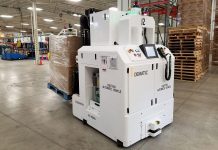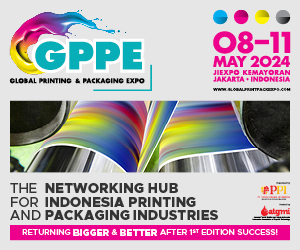In a scenario wherein convenience as well as sustainability happen to be paramount, the retail industry is indeed going through a transformative shift towards flexible packaging solutions.
This innovative approach is not just kind of altering the landscape of product packaging, but at the same time, it is also significantly elevating the consumer experience as well as environmental stewardship.
As businesses continually look to differentiate themselves as well as appeal to eco-conscious shoppers, flexible packaging has indeed started to emerge as a game-changer.
Embracing efficiency as well as sustainability
The adoption when it comes to flexible packaging happens to be driven by its remarkable ability to go ahead and reduce material use, energy consumption, and carbon footprints.
Unlike traditional rigid packaging, flexible choices go on to use less plastic, happen to be lighter in weight, and they often incorporate recyclable materials. For example, a shift from glass jars to flexible pouches can go on to cut packaging weight by almost 90%, substantially reducing transportation costs as well as emissions.
Retailers happen to be increasingly conscious when it comes to their environmental impact, spurred due to regulatory pressures as well as consumer demand in terms of greener products. Major supermarkets as well as brands throughout the UK happen to be now pioneering the usage of totally recyclable flexible packaging solutions.
These endeavors not only meet regulatory needs but at the same time also resonate well with consumers, who happen to be more likely to push brands that have strong sustainability credentials.
Furthermore, the versatility when it comes to flexible packaging enables innovative designs as well as improved product protection. It can get resealed and happens to be more robust against breaks as well as spills, thereby extending the shelf life when it comes to perishables like fruits, vegetables, along with dairy products.
This not only helps to diminish food waste, which, by the way, is quite a significant issue across the UK, but at the same time also enhances consumer convenience.
Elevating the consumer experience
Flexible packaging happens to be revolutionizing the shopping experience by way of offering unmatched convenience.
It is lightweight in nature, and this is what makes products very easy to transport as well as store- which is indeed a boon for both retailers along with consumers. Moreover, the design flexibility enables more creative as well as informative labeling, thereby elevating brand visibility and consumer engagement.
An instance of this innovation can indeed be witnessed in the rise of stand-up pouches, which are used for everything from coffee to pet food. These pouches often go on to feature zip locks or even spouts, thereby making them pretty easy to use as well as reseal, thereby maintaining product freshness.
The tactile appeal as well as the convenience of such designs often translate into higher consumer satisfaction as well as repeat purchases.
Moreover, due to the advent of smart technologies, flexible packaging happens to be increasingly incorporating elements like QR codes as well as NFC- Near Field Communication tags.
These techs not only go on to engage consumers with interactive content but at the same time also offer detailed product information, hence further empowering consumer options and fostering brand loyalty.
Leading the way for a circular economy
Perhaps the most prominent impact of flexible packaging happens to be its potential to contribute to the circular economy. The UK’s commitment in order to reduce plastic waste and promote recycling happens to be well-supported through innovations when it comes to flexible packaging.
Developments within biodegradable as well as compostable materials happen to be paving the way when it comes to packaging solutions that go ahead and promise a lower environmental effect sans compromising functionality.
Companies happen to be exploring some other materials that are derived from renewable sources, like plant-based polymers, in order to create flexible packaging that can decompose naturally or even be recycled efficiently.
These materials happen to be designed to break down in a more quick fashion than traditional plastics, hence offering a promising solution to the consistent problem as far as plastic waste is concerned.
The issue remains in creating robust recycling infrastructure so as to handle these materials.
The British Plastics Federation – BPF as well as other industry bodies happen to be collaborating with government agencies so as to elevate the UK’s recycling capacities. This has in it increasing the number of collection points as well as improved sorting along with the processing technologies in order to accommodate the typical demands of recycling flexible packaging.
At the end, flexible packaging is not just about transforming retail; it is also about redefining the probabilities for a sustainable future when it comes to packaging.
By way of reducing waste, elevating the consumer experience, and at the same time also supporting the shift when it comes to a circular economy, such an innovative approach happens to hold the key when it comes to addressing some of the most interesting and urgent environmental challenges of our time.
As retailers and consumers alike become environmentally extra conscious, the role of flexible packaging will ultimately grow, hence marking a new era within retail that goes on to prioritize both efficiency and ecological ownership.

























